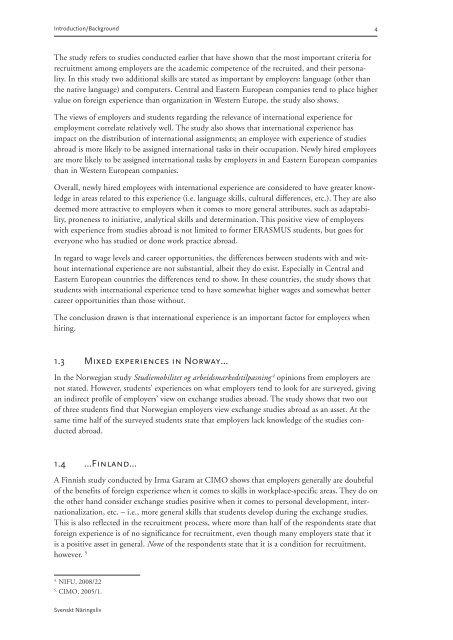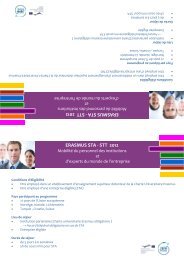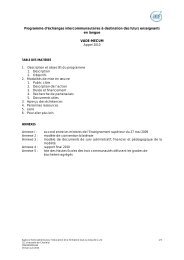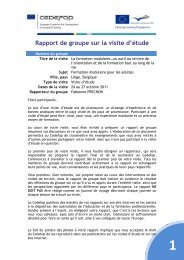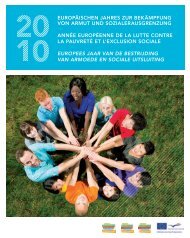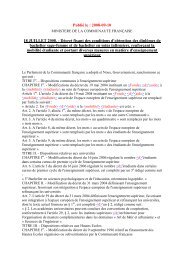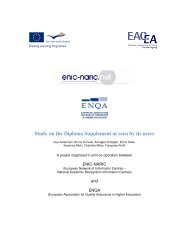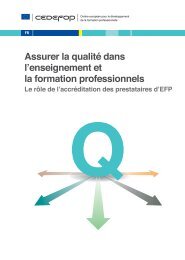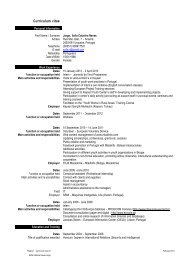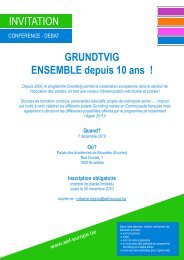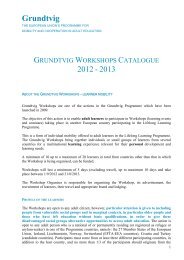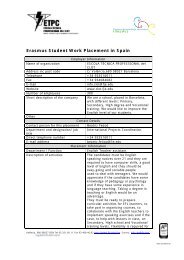Employers' view on studies abroad - Svenskt Näringsliv
Employers' view on studies abroad - Svenskt Näringsliv
Employers' view on studies abroad - Svenskt Näringsliv
Create successful ePaper yourself
Turn your PDF publications into a flip-book with our unique Google optimized e-Paper software.
Introducti<strong>on</strong>/Background 4<br />
The study refers to <strong>studies</strong> c<strong>on</strong>ducted earlier that have shown that the most important criteria for<br />
recruitment am<strong>on</strong>g employers are the academic competence of the recruited, and their pers<strong>on</strong>ality.<br />
In this study two additi<strong>on</strong>al skills are stated as important by employers: language (other than<br />
the native language) and computers. Central and Eastern European companies tend to place higher<br />
value <strong>on</strong> foreign experience than organizati<strong>on</strong> in Western Europe, the study also shows.<br />
The <str<strong>on</strong>g>view</str<strong>on</strong>g>s of employers and students regarding the relevance of internati<strong>on</strong>al experience for<br />
employment correlate relatively well. The study also shows that internati<strong>on</strong>al experience has<br />
impact <strong>on</strong> the distributi<strong>on</strong> of internati<strong>on</strong>al assignments; an employee with experience of <strong>studies</strong><br />
<strong>abroad</strong> is more likely to be assigned internati<strong>on</strong>al tasks in their occupati<strong>on</strong>. Newly hired employees<br />
are more likely to be assigned internati<strong>on</strong>al tasks by employers in and Eastern European companies<br />
than in Western European companies.<br />
Overall, newly hired employees with internati<strong>on</strong>al experience are c<strong>on</strong>sidered to have greater knowledge<br />
in areas related to this experience (i.e. language skills, cultural differences, etc.). They are also<br />
deemed more attractive to employers when it comes to more general attributes, such as adaptability,<br />
pr<strong>on</strong>eness to initiative, analytical skills and determinati<strong>on</strong>. This positive <str<strong>on</strong>g>view</str<strong>on</strong>g> of employees<br />
with experience from <strong>studies</strong> <strong>abroad</strong> is not limited to former ERASMUS students, but goes for<br />
every<strong>on</strong>e who has studied or d<strong>on</strong>e work practice <strong>abroad</strong>.<br />
In regard to wage levels and career opportunities, the differences between students with and without<br />
internati<strong>on</strong>al experience are not substantial, albeit they do exist. Especially in Central and<br />
Eastern European countries the differences tend to show. In these countries, the study shows that<br />
students with internati<strong>on</strong>al experience tend to have somewhat higher wages and somewhat better<br />
career opportunities than those without.<br />
The c<strong>on</strong>clusi<strong>on</strong> drawn is that internati<strong>on</strong>al experience is an important factor for employers when<br />
hiring.<br />
1.3 Mixed experiences in Norway…<br />
In the Norwegian study Studiemobilitet og arbeidsmarkedstilpasning 4 opini<strong>on</strong>s from employers are<br />
not stated. However, students’ experiences <strong>on</strong> what employers tend to look for are surveyed, giving<br />
an indirect profile of employers’ <str<strong>on</strong>g>view</str<strong>on</strong>g> <strong>on</strong> exchange <strong>studies</strong> <strong>abroad</strong>. The study shows that two out<br />
of three students find that Norwegian employers <str<strong>on</strong>g>view</str<strong>on</strong>g> exchange <strong>studies</strong> <strong>abroad</strong> as an asset. At the<br />
same time half of the surveyed students state that employers lack knowledge of the <strong>studies</strong> c<strong>on</strong>ducted<br />
<strong>abroad</strong>.<br />
1.4 …Finland…<br />
A Finnish study c<strong>on</strong>ducted by Irma Garam at CIMO shows that employers generally are doubtful<br />
of the benefits of foreign experience when it comes to skills in workplace-specific areas. They do <strong>on</strong><br />
the other hand c<strong>on</strong>sider exchange <strong>studies</strong> positive when it comes to pers<strong>on</strong>al development, internati<strong>on</strong>alizati<strong>on</strong>,<br />
etc. – i.e., more general skills that students develop during the exchange <strong>studies</strong>.<br />
This is also reflected in the recruitment process, where more than half of the resp<strong>on</strong>dents state that<br />
foreign experience is of no significance for recruitment, even though many employers state that it<br />
is a positive asset in general. N<strong>on</strong>e of the resp<strong>on</strong>dents state that it is a c<strong>on</strong>diti<strong>on</strong> for recruitment,<br />
however. 5<br />
4.<br />
NIFU, 2008/22<br />
5.<br />
CIMO, 2005/1.<br />
<strong>Svenskt</strong> Näringsliv


